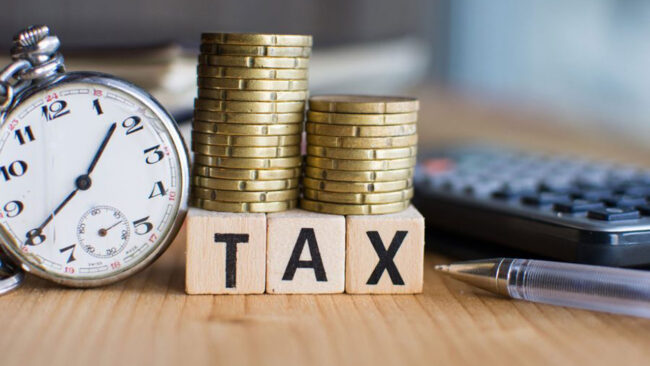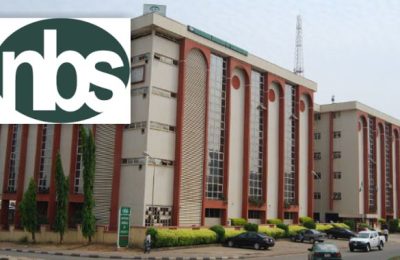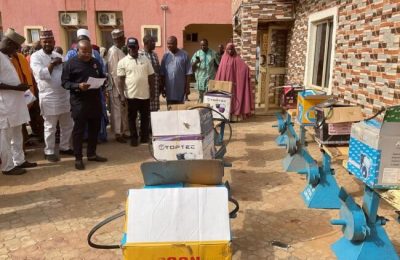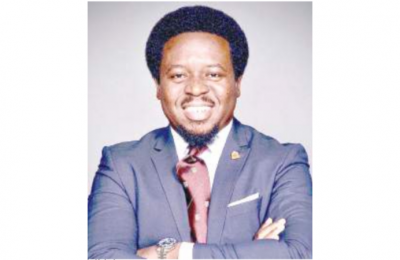
A chieftain of the Peoples Democratic Party (PDP), Dr. Adetokunbo Pearse, has said that opposition from the North to the new Value Added Tax (VAT) Reform Bills is based on the understanding that the derivation model is skewed against states with weak Internally Generated Revenue (IGR), which are mostly found in the region.
He quickly advocated that the priority for Nigeria today should not be tax reform, but economic reform.

He also pointed out that what the North needed right now was an economic policy that would devolve powers to the regions of the federation, enabling the North to utilize its vast mineral resources, such as gold and phosphate, among others.
He stated that it was Nigeria’s over-centralized governmental system that had aggravated the North’s raging insecurity and endemic poverty.
Pearse, who is also a Member of The Board of Governors, Peoples Democratic Institute (PDI), made this statement in response to the controversies generated by the bill now before the National Assembly for passage into law, with Governor Babagana Umara Zulum of Borno State and Senator Alli Ndume voicing their strong opposition to it.
The PDP chieftain, a former governorship candidate, acknowledged that President Bola Ahmed Tinubu’s Tax Reform Bills contained some positives, as, according to him, they would succeed in harmonizing tax collection in the country and help reduce the tax burden on low-income earners.
However, he quickly faulted the attempt to make the North pay its share of taxes, saying that such an approach amounted to playing to the gallery.
“Most of President Tinubu’s Tax Reform Bills will be beneficial to the nation, but the changes in the area of Value Added Tax, in particular, are skewed against states with weak Internally Generated Revenue (IGR).
Most of these poorer states are in the North, hence the strongest opposition to the changes is coming from up North.
“A review of the VAT revenue-sharing formula, whereby the states now take 55% of the revenue instead of 50%, is more in the interest of states like Lagos and Rivers, with high rates of generation. It is not in the interest of states with smaller intake, such as Zamfara, Sokoto, Ekiti, and Gombe.
“Perhaps the issue that is most unacceptable to the North—and the main bone of contention—is the new VAT derivation model. Under this arrangement, 60% of VAT revenue attributed to the credit of states is shared on the basis of derivation, while 20% is shared based on population size.
This means that the northern states, which generate little VAT but receive additional VAT funds due to their large population, will no longer enjoy that privilege.
“Another aspect of the new VAT derivation model that doesn’t favor the North is that VAT revenue will no longer be credited to the place from which it is remitted, but to the locations where the consumption of goods and services takes place.
“This provision has a double negative effect on the North. On the one hand, VAT generated from the few companies headquartered in the North will no longer be credited to those northern states. On the other hand, VAT generated from goods and services will be credited to the locations where the economic activities take place.
“In the first instance, the North loses VAT revenue from the advantageous company addresses in Kano, Kaduna, Jos, and Abuja. In the second place, it will no longer be able to share in taxes on alcohol, food, and beverages consumption, which mainly take place in southern states,” Pearse stated.
“President Tinubu’s Tax Reform Bills contain some positives. They will succeed in harmonizing tax collection in the country. The bills also help reduce the tax burden on low-income earners and on small and medium-sized businesses. But the priority for Nigeria today is not tax reform, but economic reform.
“This attempt to make the North pay its share of taxes is playing to the gallery. People who hail this punitive action should be careful. Ask yourself how you stand to benefit.
The main achievement of this so-called reform bill is to make the poor North even poorer. It doesn’t reduce the level of poverty, nor does it increase employment anywhere in the country,” he added.
Pearse, who is also a Public Affairs Analyst, while noting that it was common knowledge that the North has not been as economically buoyant as the South since independence, asserted that the way to correct this imbalance was not through legislation that would further impoverish the region, but through an economic policy that would devolve powers to the region and enable it “to utilize its vast mineral resources of gold, phosphate, bauxite, uranium, and lithium, as well as its rich agricultural produce, to develop its economy.”
The PDP chieftain said the over-centralized governmental system in the country had aggravated the North’s raging insecurity and endemic poverty, warning that tax policies that demonize one group of people only deepen disunity and mutual distrust.
He pointed out that a genuine leader should recognize that the problem of the North is not a northern problem, but a Nigerian problem. He said that it was incumbent on all to modernize the North “in our overall national interest” in order to resolve the country’s most pressing economic and security challenges.
ALSO READ:Retail shareholders rally UBA’s N239.4bn rights issue
“It is common knowledge that since independence, the North has not been as economically buoyant as the South. The way to correct this imbalance is not to introduce legislation that would further impoverish the North.
“What the North needs is an economic policy that would devolve powers to the region, enabling it to utilize its vast mineral resources of gold, phosphate, bauxite, uranium, and lithium, as well as its rich agricultural produce, to develop its economy.
“It is Nigeria’s over-centralized governmental system that has aggravated the North’s raging insecurity and endemic poverty. Tax policies that demonize one group of people only deepen disunity and mutual distrust.
“A genuine leader should know that the problem of the North is not a northern problem, but a Nigerian problem. In order to resolve the country’s most pressing economic and security challenges, we must strive to modernize the North. This is in our overall national interest,” Pearse argued.







